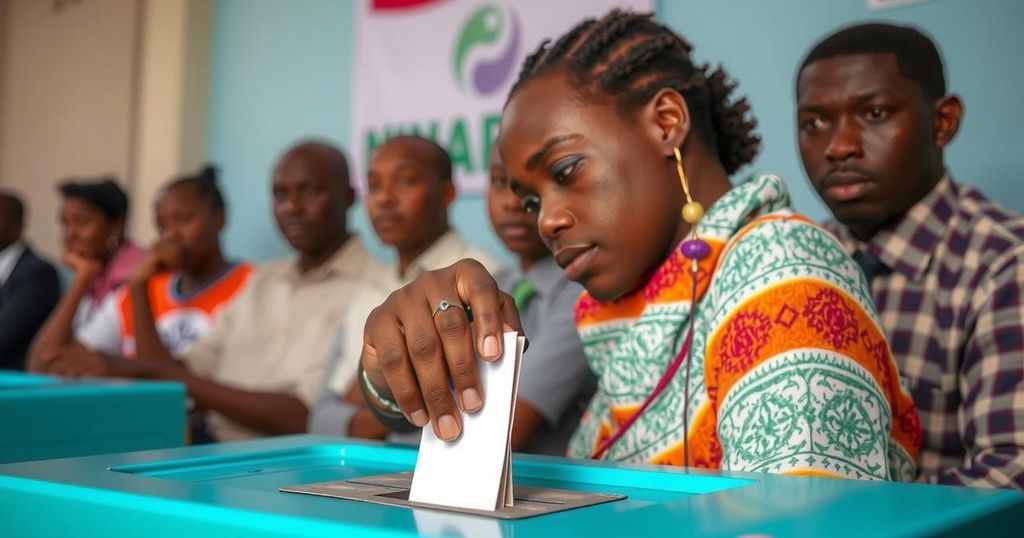Chad’s Parliamentary Elections: A Turnout Low Amid Opposition Boycott

Chadians voted in parliamentary and regional elections marked by low turnout and significant opposition boycotts. The elections aim to conclude a three-year military rule but face legitimacy challenges amid widespread allegations of electoral manipulation. Over 8 million voters are registered, but many opposition parties have opted out of the process, claiming it is a ‘charade.’ These elections highlight Chad’s struggle for democracy amidst ongoing security challenges.
On Sunday, the Chadian populace participated in parliamentary and regional elections, marked by a significantly low voter turnout and notable opposition boycotts. This election signifies the conclusion of a three-year transitional military ruling period initiated after the death of long-time leader Idriss Deby Itno. Although the government hailed the elections as a path towards decentralization and democracy, major opposition parties criticized the process, deeming it illegitimate. The elections, which the junta regarded as a return to democratic governance, are set against a backdrop of security challenges and political instability in Chad. Voter registration counted over 8 million, but the political climate has led to apprehensions regarding the integrity of the electoral process.
Chad has not witnessed a genuinely free and fair electoral process since gaining independence from France in 1960. The current elections are historic as they are the first parliamentary elections in over a decade. Following the abrupt transition to military rule after President Idriss Deby Itno’s death, his son, Mahamat Idriss Deby, assumed power. The international community, including numerous observatory groups, has closely scrutinized the electoral process due to the coercive tactics reportedly employed against opposition parties and the preceding presidential vote’s controversies. Among the voters are individuals who aspire for improved governance in a nation plagued by poverty, insecurity from militant groups, and a long-standing lack of democratic freedom.
The parliamentary elections in Chad epitomize the nation’s arduous transition from military rule to a potentially structured democracy. However, the significant opposition boycott highlights the widespread discontent and skepticism about the electoral legitimacy. With pressing security issues and a historical background of political turmoil, Chad stands at a critical juncture. The outcome of these elections will determine the scope and sustainability of democracy in the country moving forward, amidst calls for fair governance from a weary populace.
Original Source: apnews.com






